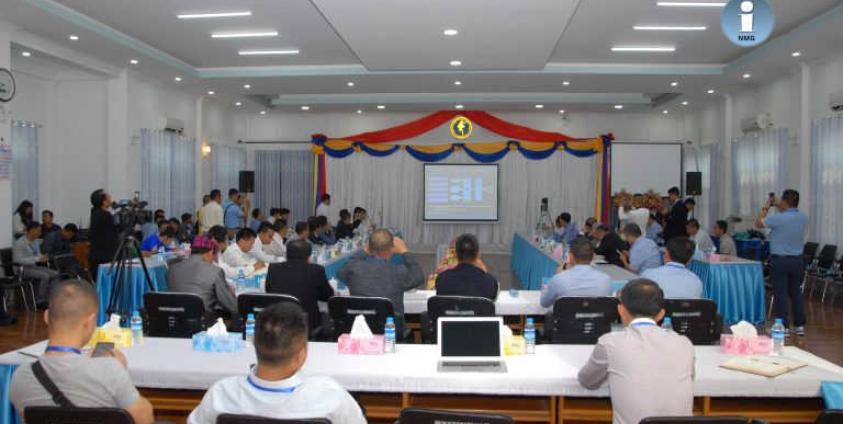State Counselor Office director Zaw Htay on May 31 said that the meeting with the Northern Alliance-Burma (NA-B) will take place soon and the draft to sign bilateral ceasefire with the four members, the Kachin Independence Army (KIA), Myanmar National Democratic Alliance Army (MNDAA), Ta’ang National Liberation Army (TNLA) and Arakan Army (AA), are already been prepared.
On April 30, members of NA-B gave the National Reconciliation and Peace Center (NRPC) their draft proposal details on bilateral ceasefire, which basically and practically could be useful in troops stationing; demarcation of territories; form of political dialogue; and how a facilitation, monitoring team should be formed during the transitional period of ceasefire arrangement; according to TNLA brigadier general Ta Phone Kyaw, reported Daily Eleven on May 30.
Actually, the meeting between the government NRPC and the NA-B was scheduled to be held on May 25-26 but has to be postponed due to problems in agreement over the meeting venue. Places like Naypyitaw, Kunming and Muse were discussed but the parties haven’t been able to agree upon the meeting place.
Reportedly, according to the media the AA is said to have worries on security of its leaders, to which Zaw Htay replied with the confirmation of the Tatmadaw that the government guaranteed their safety, emphasizing that not even a scratch will be inflicted upon them.
AA insisted that the security precaution was not the worry of its group alone but the concern of all the NA-B members.
Somehow now it seems that the meeting will take place in Muse, where the last meeting also took place a month ago.
This is, in fact, a really good news in a long while, as the government and the Tatmadaw have come a long way from the stubborn rejection to even recognize the three Ethnic Armed Organizations (EAOs), TNLA, AA and the MNDAA, as negotiation partners.
The rejection then was based on the arguments that they were relatively new parties and the Tatmadaw was not ready to accept new parties popping up like mushrooms and to accommodate them. The Tatmadaw saw this as some ethnic groups taking advantage of the situation for their respective leadership personal gains. And the Tatmadaw has even gone so far to demand for the three EAOs to surrender without condition in order to be accepted into the peace process negotiation.
However, it later drew back a step and only asked for deeds of commitment to lay down arms following the successful peace process, which was also rejected by the three EAOs. And at this present situation, bilateral ceasefire proposal is accepted by the NRPC with the endorsement of the Tatmadaw, which said that it will participate in the negotiation of foreseeable ceasefire talk arrangement.
But now the Tatmadaw’s true news information spokesman brigadier general Zaw Min Tun, on May 27 during the press conference at ministry of information, told the media that the AA stationing of its troops in Arakan state will not be considered as it has been a white area (government control area) so far as the government is concerned and the participation of the AA will only be on the basis of its troops stationary in Laiza, Kachin state, where it has started and the bulk of its troops are still stationed.
The projected aim for the bilateral ceasefire is to end the war countrywide so far as the NA-B is concerned. But the Tatmadaw until now seems to reject the AA presence in the Arakan state and likely would be insisting that the AA troops operating within Arakan state either return to Kachin State or surrender, which is going to be a non-starter.







